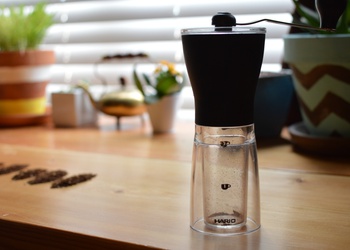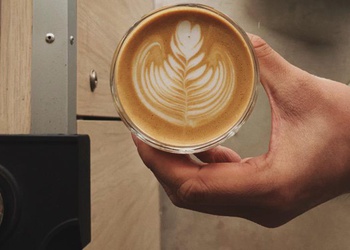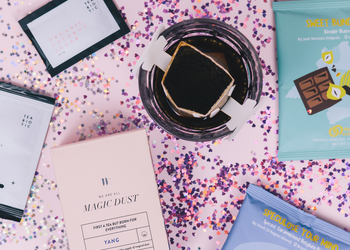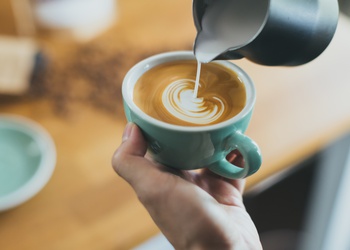THEHOOKBLOG
Coffee Fuelled Thoughts, Stories and Ideas
Know Your Coffee: A Guide to Getting the Most Out of Your Coffee
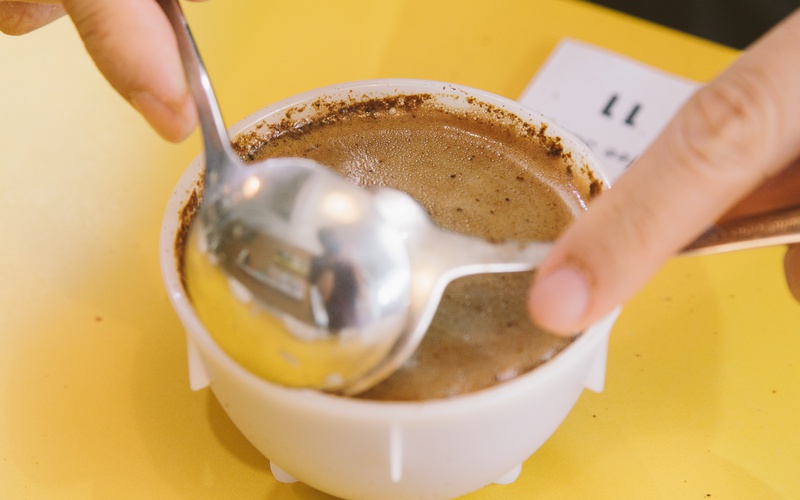
Every week, I would notice Hook's Head of Coffee, Kit, get busy setting up the showroom counter. Being the curious person that I am, I'd scoot over for a look. Seeing sampling cups and labels lined up on the countertop, I'd ask the same question every time: "cupping again?"
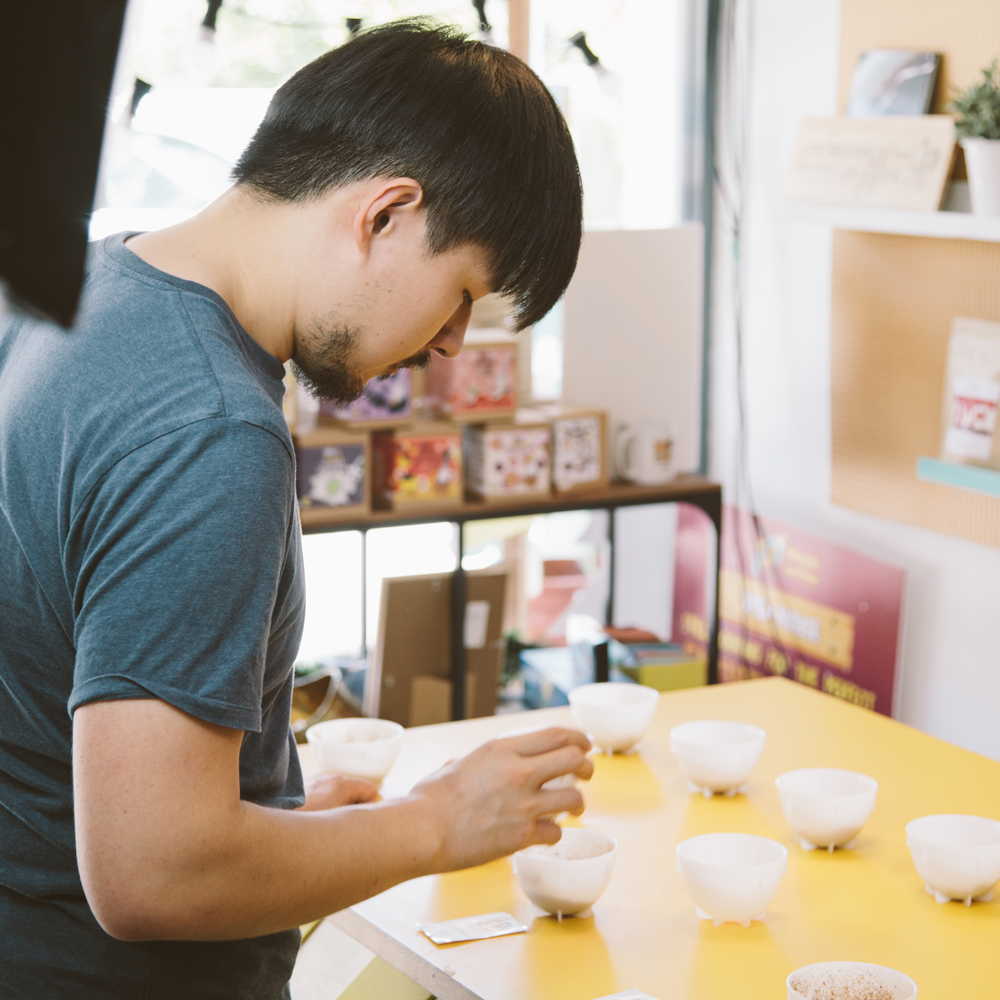
It's not as if cupping is foreign to me, it just felt like something to do on a special occasion, perhaps during a coffee appreciation workshop. Perhaps it's the folly of someone who isn't yet deeply involved with producing specialty coffee, but it never occurred to me that cupping is an exercise – so I decided to join Kit during a recent cupping to learn more about the practice and why he did it so often.
On the Value of Cupping
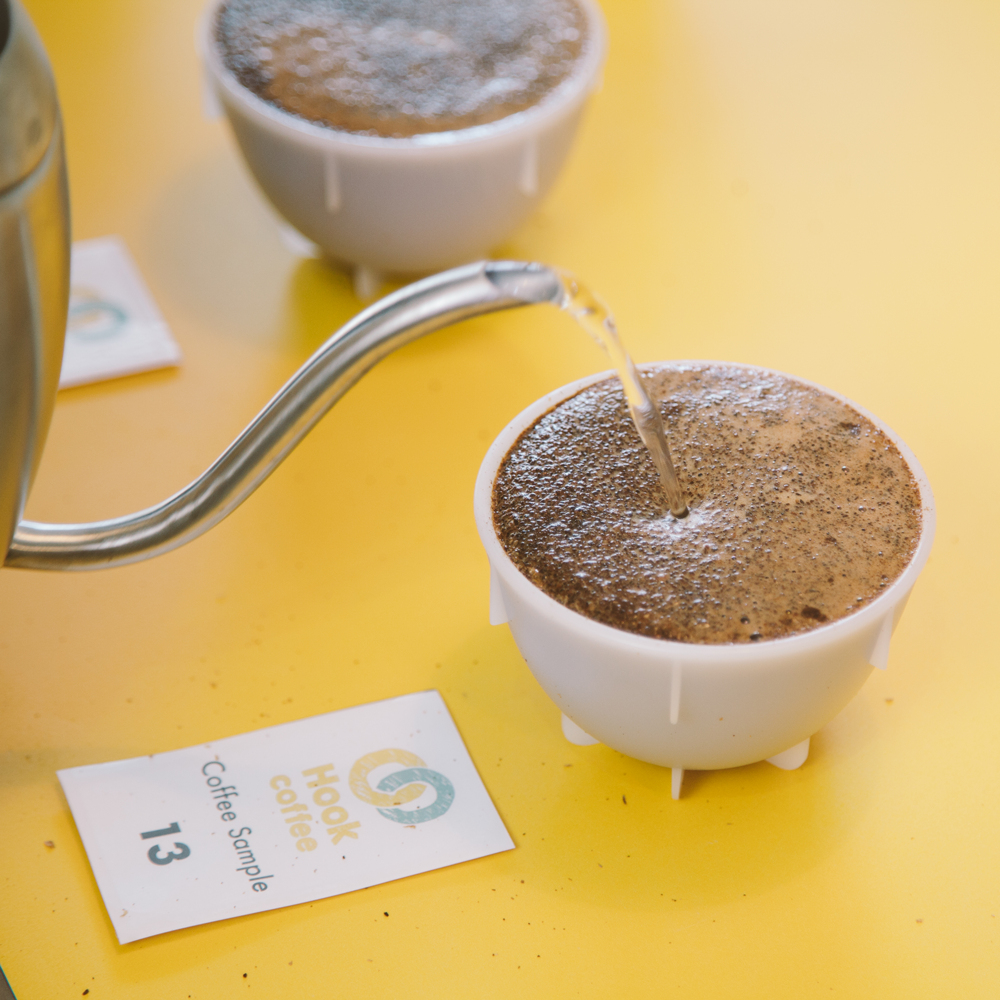
"So, you cup every week, at least once – why make this commitment?" I asked.
"If we're talking about work, it's really just basic quality checking – every production batch must be tasted for consistency. If you're in a position of purchasing and producing coffee, you've got to be critical of your skills and your product, because the goal is to deliver a quality product. On a personal level, it's to improve my own palette – and this skillset is important for any coffee roaster, or if you're doing anything related to coffee. The thing is anyone can drink coffee, but not everyone can truly taste it, and it is tasting coffee that is a challenge."
"Alright. Tell me more about the value of cupping."
"The exercise is a process, really. Put simply, it's palette training, and it's vital for coffee roasters because it helps us identify and understand consistency. I personally do it at least once a week, some people do it twice, but it all boils down to this: if you don't cup regularly, maybe just once at the start when you first purchase the coffee, the promise of consistency and good quality goes out the window. It's super important to be proactive – committing to the process of going back and forth to pick up on what's good or bad about your coffee will eventually make your coffee better."
What is Cupping?
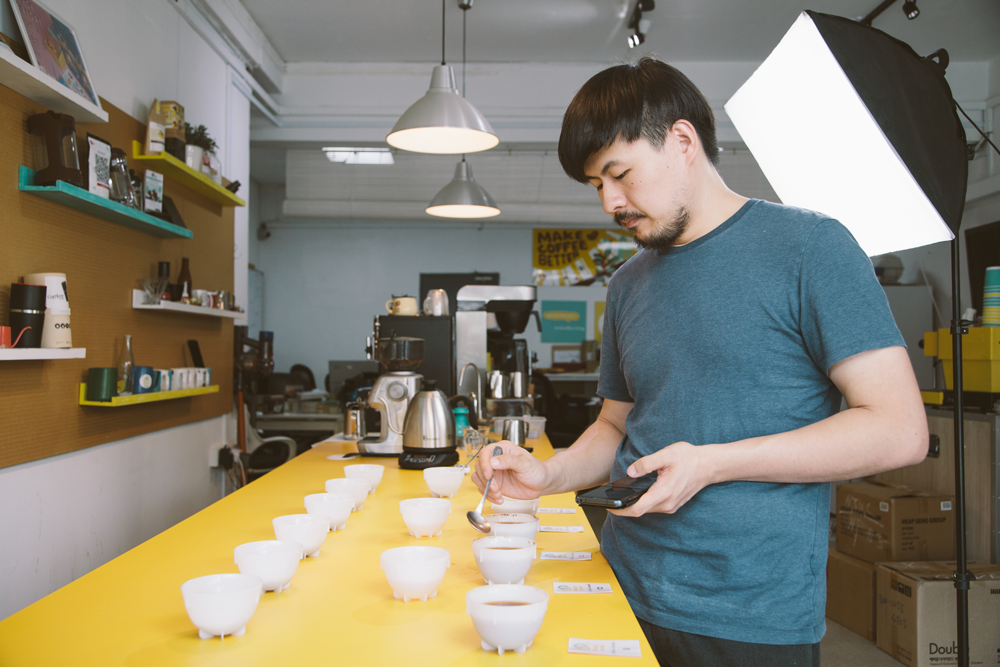
"Cupping is really just a fancy term for "tasting". That aside, all you need for cupping is just coffee and water – the essential elements. In a way, because these are all you need, it's kinda hard to go wrong during the exercise, because you'll most likely brew a proper cup of coffee with all its dimensions available for you to taste – the only variables that you would have to deal with in terms of taste should come from roasting and/or aging. In essence, I use cupping to ensure that each coffee is roasted to its best potential to satisfy our customers."
On Coffee's Time-Sensitive Nature
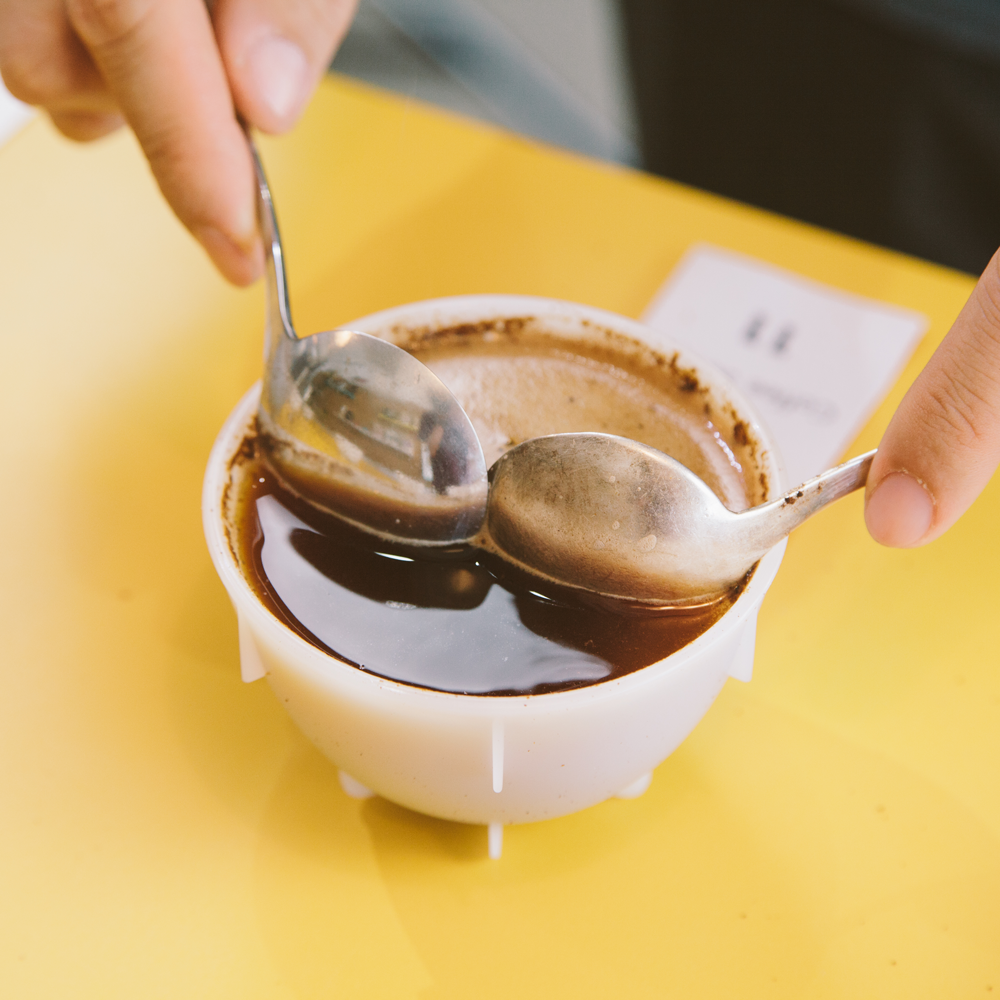
"When you think of consumables, "fresh" is a concept that everyone fixates on, and it's the same for coffee – everyone wants "fresh" coffee. A bag of coffee that is a couple of days old is pretty standard and acceptable to most. That said, even if your coffee is a week old, it doesn't mean the coffee is past its prime – I make it a point to cup week old coffees, personally."
"Tell me more about what aging does to coffee."
"When coffee ages, it gets to rest and it degasses. When cupping aged coffee against newly roasted coffee, you'll get to see what factors make it great or bad tasting – the way it was roasted, or if aging really did it any good. That said, I do not cup freshly roasted coffee, like coffee right out of the roaster. I tend to let it rest for a minimum of one day like other industry professionals, because the coffee needs to degas. The resting period and degassing is critical because it allows the coffee to stabilise."
Degassing Explained
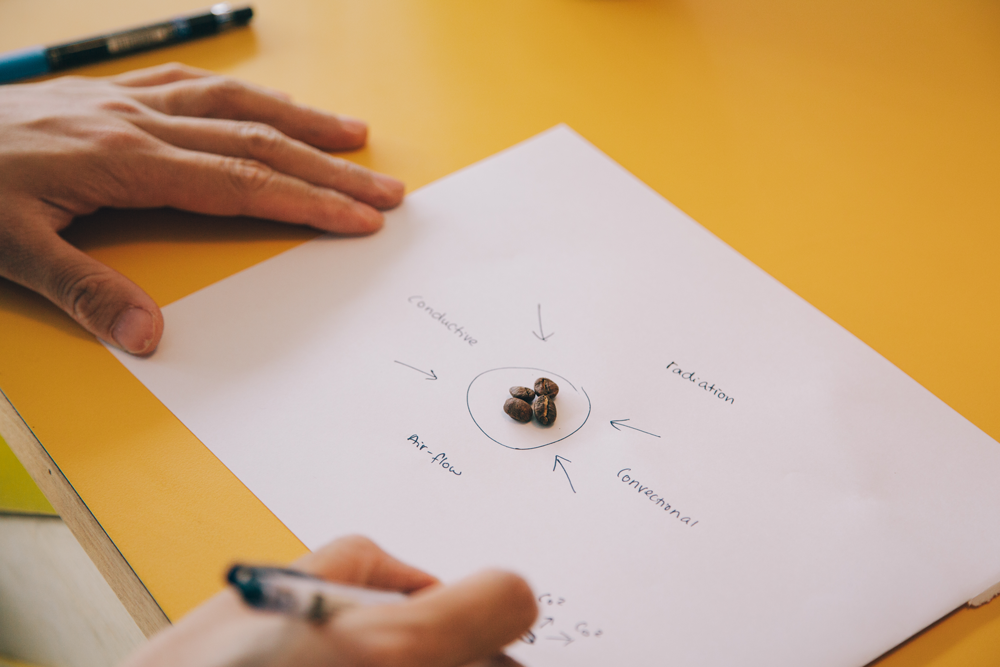
"What is degassing and why is it so important?"
"Let's look at it like a chemical reaction: when you roast coffee, you're putting a lot of pressure into the coffee. We've got radiation in the form of heat, convectional heat, conductive heat, airflow – it's all a lot of energy and heat being packed into the coffee. This builds huge amounts of pressure in the coffee, and the byproduct is a lot of carbon dioxide (CO2) in the coffee's cell walls. Once the coffee is completely cooled, the CO2 still resides inside the coffee, and it's gradually released over time."
"Roasting sounds so rough for the coffee. I almost feel bad that the end product is so delicious."
"Yeah, it kinda is rough for the coffee. When coffee is roasted, its cell walls essentially rupture. That's how coffee goes stale, actually. When you leave coffee out in the open, oxygen enters the cell walls through those ruptures, which turns your coffee stale over time. Anyway, back to degassing – as long as coffee is roasted, it'll always be in a state of degassing until it fully degasses or goes stale. If you've had soda water, you'll know that it tastes slightly bitter and has a gassy mouthfeel – that's what CO2 does, and that's what you can expect to taste out of freshly roasted coffee, a product that is dominated by the taste of bitterness. This is explains why we let our coffee bloom when doing pour overs – it allows excess CO2 to escape, resulting in less resistance against your brew water, thereby producing a more even extraction."
"So how does degassing relate to cupping?"
"Basically, letting the coffee rest and degas prevents CO2 from interferring with how the coffee tastes. In fact, some coffees taste even better the more they rest and degas. Take Cherry Bomb, for example. I've compared a two week old sample against a day-old roasted sample, and this is what I got: the two week old version tasted a lot more nuanced – slightly smoother in body, with hints of vanilla and cherry that really came through. The day-old sample was lighter in body, and the cherry flavour was a lot brighter. This example is a perfect representation for personal preference in terms of taste. However, with this, there is also a problem: the misunderstanding of what constitutes fresh coffee. Again, when some people receive a week-old bag of cofffee, they think it's past its prime – it's a pretty big misconception. Funny thing is, some roasters emphasise a week's worth of rest for some coffees – the benefits of aging vary from coffee to coffee. What I'd recommend is, if you're feeling adventurous, portion into samples and let your coffee rest and degass as much as you'd like, then identify which tastes the best for you!"
Should We All Cup?
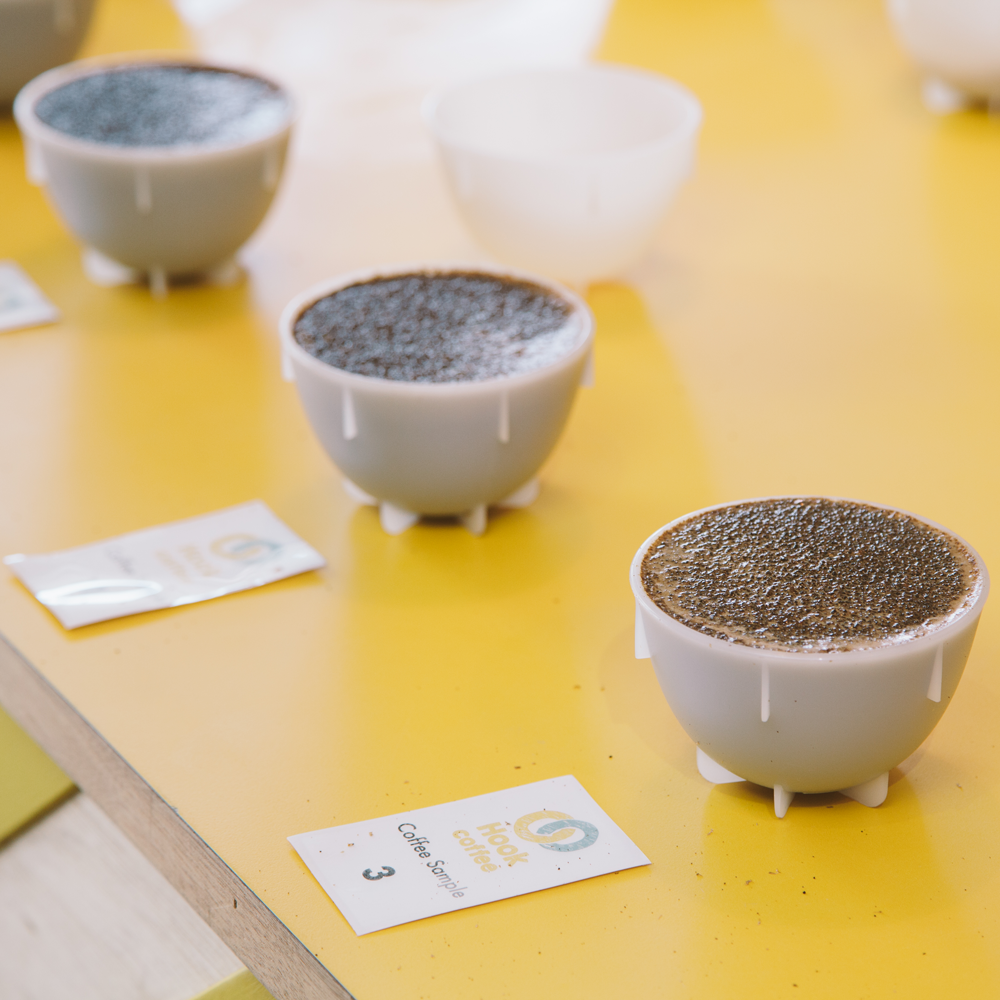
Call me simple, but my world was kinda changed at this point. I now understood the value of cupping, and beyond that, I understood the value of being cognizant about a product I used daily, but took for granted. However, there was one thing I now had to resolve: would everyone have their minds changed in the same way, and would this new attitude be weighted as significant enough to warrant action?
"Well, should we all cup, then?" I asked.
"It's super easy to do, and I would like for people to try it at home. Again, it involves just water and coffee, fundamentally. A higher order cupping would require at least two different coffees, so that you may make comparisons between each, critically analyse them both, and train your taste buds! It could be as contrasting as a Brazilian coffee against an Ethiopian coffee, or it could be a Brazilian coffee against another Brazilian one from a different farm. The key is to identify differences and think about how their background affects their flavour profiles, and deciding which you prefer. I really encourage this exercise because it helps to increase consumers' knowledge about the coffee they're getting. I'd also like to add that there's no right or wrong when it comes to cupping, and no one is going to be an overnight, 100% expert at it – it's simply an exercise that should at best, help one appreciate coffee for what it is. Be your own judge!"
I suppose for a coffee enthusiast like myself, this new knowledge was super enlightening. Like Kit, I sincerely hope that anyone reading this would take the time to immerse themselves and understand the coffee that you're getting from us. We've got great products – I dare say that confidently, and there's so much more you could get from our coffees by engaging in the exercise that we've recommended here! Give it a shot, and feel free to share how it is for you!
Get Hooked!

